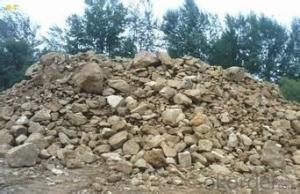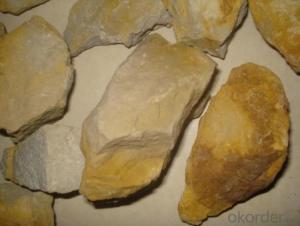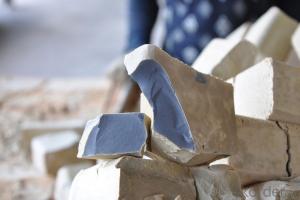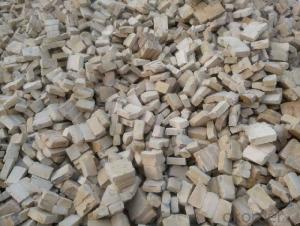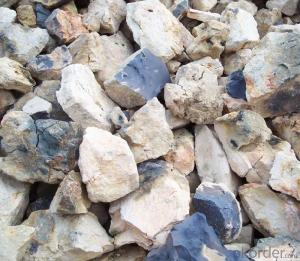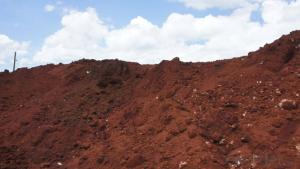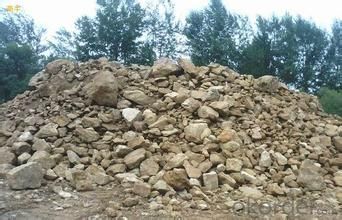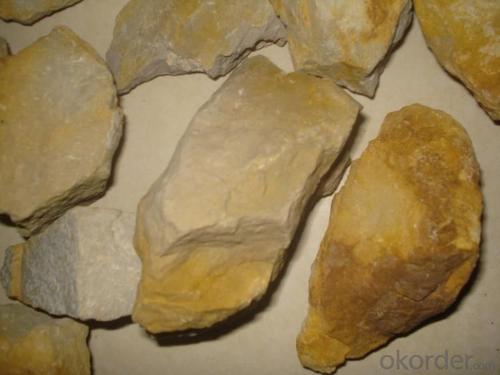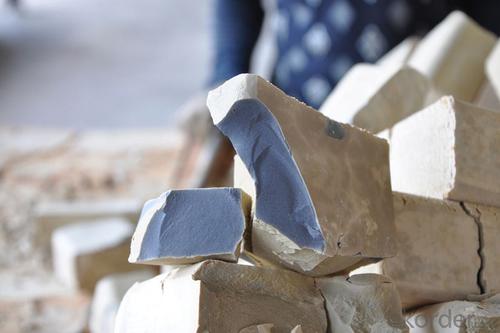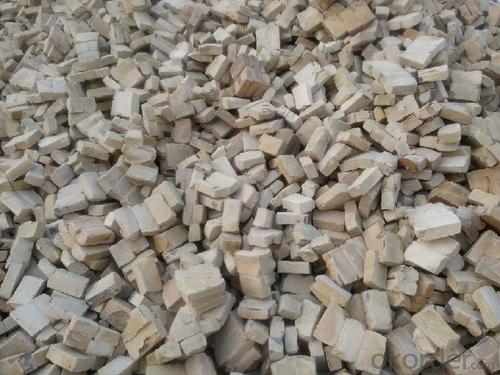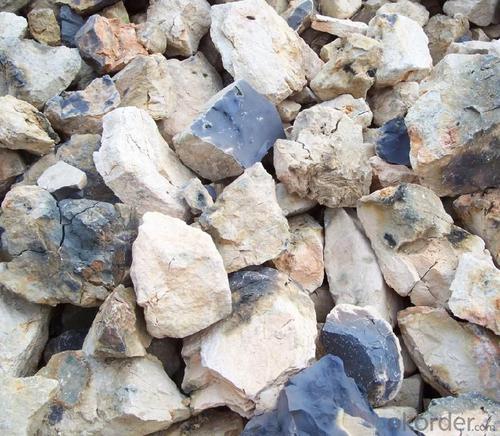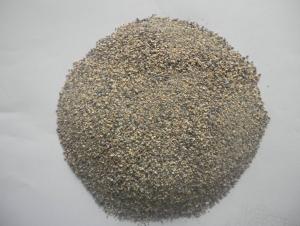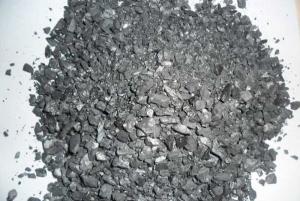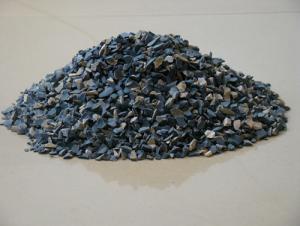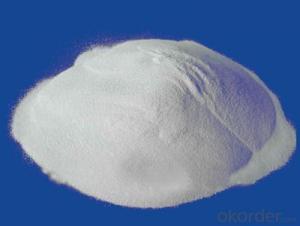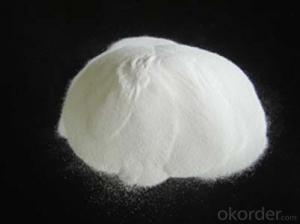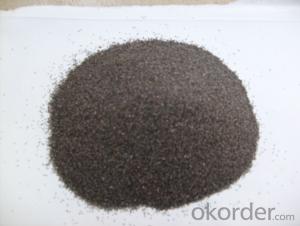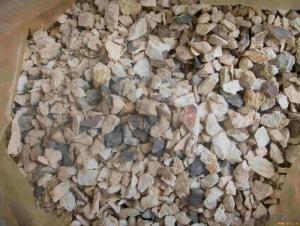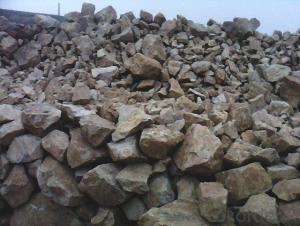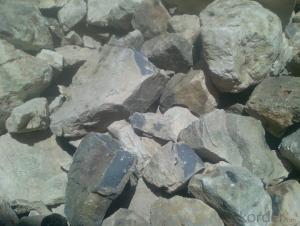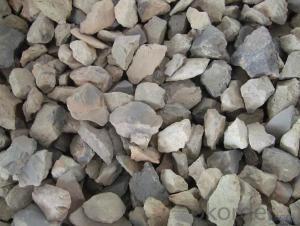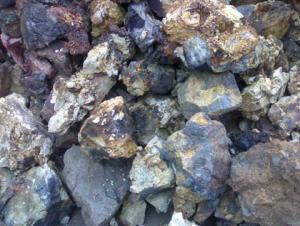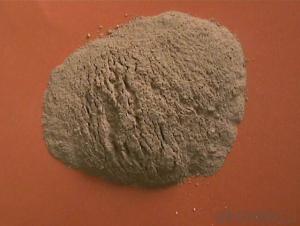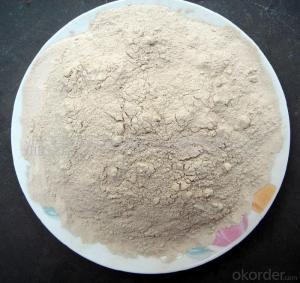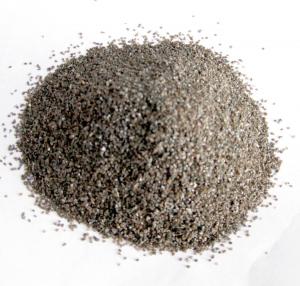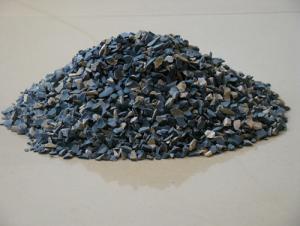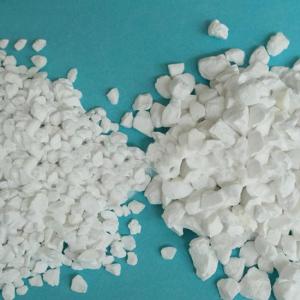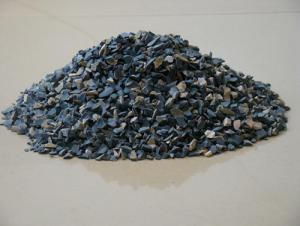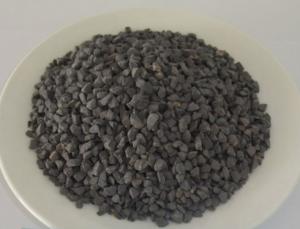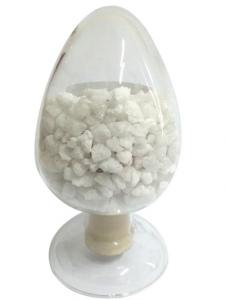Raw Materials for Refractory:Calcined Bauxite from CNBM's Rotary Kiln in China
- Loading Port:
- Tianjin
- Payment Terms:
- TT or LC
- Min Order Qty:
- 11 m.t
- Supply Capability:
- 11111111 m.t/month
OKorder Service Pledge
OKorder Financial Service
You Might Also Like
1.Structure of Calcined Bauxite Description
Bauxite (aluminous soil; Bauxite) is also called the alumina or bauxite, main ingredients are alumina, hydrated alumina containing impurities, is an earthy mineral. White or gray, brown and yellow or light red by iron. From 4 to 3.9 g/cm3 density, hardness, 1 ~ 3 is not transparent, very brittle. Very difficult to melt. Insoluble in water, soluble in sulfuric acid, sodium hydroxide solution. Mainly used for aluminium, refractory material.
2.Main Features of the Calcined Bauxite
Calcined bauxite is one of the principal ore of aluminum. Calcined bauxite contains hydrous aluminum oxides and aluminum
hydroxides, formed through the laterization of aluminous rocks in tropical and subtropical areas .Calcined bauxite is obtained by calcining (heating)superior grade bauxite at high temperature (from 85OC to 1600C) .This removes moisture there.By increasing the alumina content,compared to an alumina content of about 57%to 58% in raw bauxite, calcined bauxite has an alumina content of 84%to88%.The heating is carried out in rotary kilns.
3.Main usage of the Calcined Bauxite
1.aluminium industry
2.precision casting
3 refractory materials
4.aluminum silicate refractory fiber for fiber blanket, refractory brick .
5. refractory cement
Bauxite is an aluminium ore and is the main source of aluminium.
Bauxite is used in cement, chemicals, face makeup, soda cans, dishwashers, siding for houses.
4. Calcined Bauxite Images
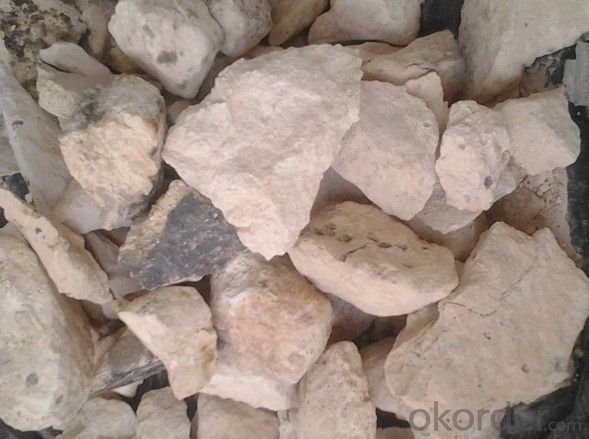
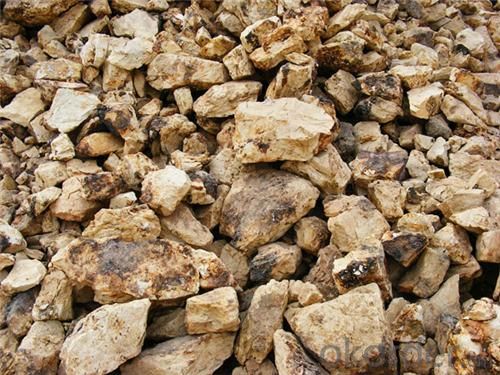
5. Calcined Bauxite Specification
Calcined Bauxite Introduction
Property | Specifications |
Name | aluminous soil ; bauxite |
Color | White, offwhite, auburnish yellow or light red (with Fe) |
Bulk Density | 2.55~3.6 g/cm3 |
Hardness | 1~3 |
Main usages | 1. Aluminium metallurgy 2.Refractory |
Calcined Bauxite Specifications
Classifications | Chemical Component % | Refractoriness | Bulk Demsity | ||
Al2O3 | CaO | Fe2O3 | °C | g/cm3 | |
Superfine | >85 | <0.6 | <1.4 | >1790 | >3.6 |
Level 1 | >80 | <0.6 | <3.0 | >1790 | >3.0 |
Level 2A | 70~80 | <0.8 | <3.0 | >1790 | >2.8 |
Level 2B | 60~70 | <0.8 | <3.0 | >1770 | >2.65 |
Level 3 | 50~60 | <0.8 | <2.5 | >1770 | >2.55 |
6.FAQ of Calcined Bauxite
1). Q: Are you a factory or trading company?
A: We are a factory.
2). Q: Where is your factory located? How can I visit there?
A: Our factory is located in ShanXi, HeNan, China. You are warmly welcomed to visit us!
3). Q: How can I get some samples?
A: Please connect me for samples
4). Q: Can the price be cheaper?
A: Of course, you will be offered a good discount for big amount.
- Q: How to solve the shell, the crack problem of refractory material in the process of forming.
- Pressure mode and number of pressure control "spallation". 2, multiple pressure, pressure degree and discharge way: 1, reduce friction, choose appropriate, than big pressure disposable pressure produced by the plastic deformation, allocate reasonable grading, internal and external friction, reduce billet particles and high die wall bright. 4.--- solve the light one firstly. --moisture content being too high easily cause spallation - the compressibility of water is small and have certain elasticity, appropriately to extend the pressuring time is beneficial. The material can produce large plastic deformation under the effect of continuous load. The right amount of lubricant. - body under the condition of less pressure but long effect time molding. Mould structure is reasonable and improve billet natural stacking density. 5.3, measures to improve the unburned brick molding quality. Many times continuously pressure relief is better than one-off sudden unloading, and controlling the appropriate moisture content;- - is beneficial to air overflow.
- Q: What are the standards of refractory concrete ?
- General requirements (1) All the materials for compounding refractory concrete must meet the design requirements and they should be checked according to the relevant standard. (2) The compounding of refractory concrete should be done strictly in accordance with the compounding proportion (usually weight), and the using of various binders, aggregates, coagulant, and water should be accurately measured. Tolerance of difference of cement, powder and water should be not more than 1 %; weight of aggregates does not exceed 3%. (3) The mix of different varieties of concrete must be prevented. (4) A variety of raw materials should be piled separately according to different species, mark numbers, dates of manufacture. Do not mix with limestone, silica, railroad ballast, dirt and other harmful debris.
- Q: How to distinguish between class A fire resistant door and class B fire resistant door from appearance ? What are the differences between the two refractories? Thank you !
- First, the materials are the same. But the thickness of grade A and grade B fire doors is different juding from their appearances. Grade A :50. Grade B:45. Added question: Do you refer to steel fire door?
- Q: What materials are needed to make the amorphous refractory bricks?
- The amorphous refractory brick is composed of a certain proportion of aggregate and powder, a binder and an additive, and it can be directly used or used after allocation with some liquids. The amorphous refractory brick is a new type of refractory material without calcination, its refractoriness is below 1580℃.There is a wide variety of refractory materials. According to the production method and usage thereof can be divided into concrete, castable, plastic refractory, ramming refractory, gunning mix, sling refractory, coating material, dry ramming mix , fire clay, and all kinds of repairing mass(Asphalt combined with large surface charge compensation, Martin also belongs to the shape of the amorphous refractory material).
- Q: Where is the sizing nozzle for refractories? Just enter the line, master into!
- Hua Heng refractories in the industry reputation is good, especially in the Southern small steel sales are among the best!
- Q: What are the features of construction class A fire resistant door ?
- 1, Save space and reduce cost. Feature of Nanjing Cathay Class A external wall thermal insulation materials : the thickness is between 60mm--180mm, so compared with the traditional block thickness, it saves architectural space greatly. At the same time, the weight is only 1/10 of that of the traditional wall, thus reducing coast in terms of architectural?structure. 2, Fireproof and green. Features of Nanjing Cathay class A fireproof external wall thermal insulation materials: fire endurance under high temperature of 1000℃ is 4 hours, and non-combustible performance can reach state A level, without any toxic gas in full compliance with international environmental standards. 3, Waterproof. Features of Nanjing Cathay Class A fireproof external wall thermal insulation materials: no slightest leakage when it is being used in containers for water without any waterproof finishing. It can be used in kitchens, bathrooms, basements and other wet areas. 4, Sound insulation. Features of Nanjing Cathay class A fireproof external wall thermal insulation materials: internal materials and EPS polystyrene foam granule have good properties of sound insulation and sound absorption. 90mm-thick wall can insulate 40dB sound, in line with national standard of sound insulation for residential building. 5, Thermal insulation. Features of Nanjing Cathay Class A fireproof external wall thermal insulation materials: main raw material is frezing resistant and thermal insulating material which is environmentally friendly and energy saving. With good effect of thermal insulation, it can keep indoor temperature at a constant level, so as to make the environment more comfortable.
- Q: What is special refractories?
- Long nozzle, slidding plate, tapping hole, stopper rods, and products that steel mills use
- Q: How to apply the alumina powder on refractories?
- The most common one in use is the refractory bricks.
- Q: I would like to know if there is any requirement for refractories in the crucible type high-frequency smelting furnace Worry! I hope you can help me! This time!
- Good thermal stability, the crucible wall hour working temperature fluctuation is great, and the temperature field distribution is uneven, so the crucible wall will continue to produce volume expansion and contraction, resulting in cracks, which directly affect the service life of the crucible
- Q: What's the A grade fireproofing material?
- A grade fireproofing material: 1. fire-proof plate; 2. fireproof wooden door; 3. fireproof wooden window frame; 4. fire resisting shutter; 5. fireproof and mothproof wood; 6. fireproof glove compartment; 8. fire?retardant?coating; 9. fire-proof?sealing?material.
Send your message to us
Raw Materials for Refractory:Calcined Bauxite from CNBM's Rotary Kiln in China
- Loading Port:
- Tianjin
- Payment Terms:
- TT or LC
- Min Order Qty:
- 11 m.t
- Supply Capability:
- 11111111 m.t/month
OKorder Service Pledge
OKorder Financial Service
Similar products
Hot products
Hot Searches
